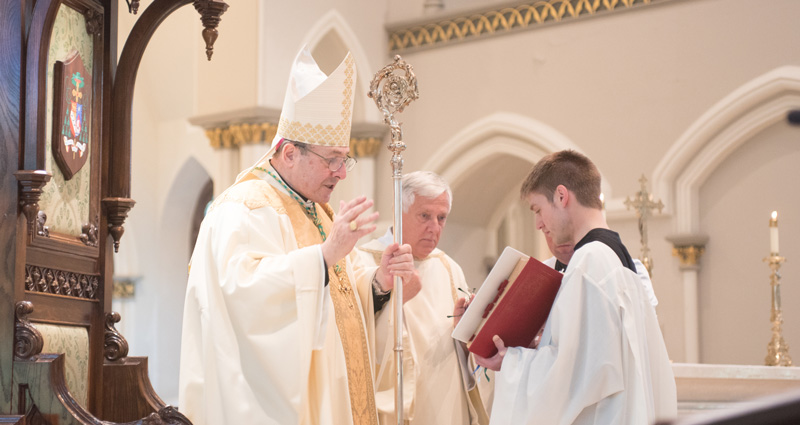
The Jubilee Year of Mercy came to an end on Nov. 20, but people are encouraged to carry its message into the future.
Pope Francis called for the Year of Mercy, which began Dec. 8, 2015, as a way to spread the message around the world in a time when mercy often seems in short supply.
During the Jubilee Year, the pope himself used his weekly and monthly audiences to reach out in mercy. As the year came to an end, he urged all to continue sharing God’s mercy through prayer and individual acts of kindness.
Pope Francis also extended special provisions made during the year, including giving all priests permanent permission to absolve those who have procured an abortion.
Holy Doors around the diocese were officially closed at Masses held to conclude the year.

Doors were closed on Nov. 13 at St. Michael in Murrells Inlet, St. Anthony in Florence, St. Gregory the Great in Bluffton, St. Peter in Columbia, St. Mary in Greenville, and the Shrine of Our Lady of South Carolina/ Our Lady of Joyful Hope in Kingstree.
The doors at the Oratory in Rock Hill and St. Mary Help of Christians Church in Aiken closed Nov. 20, along with the Cathedral of St. John the Baptist in Charleston, which is the seat of the diocese.
At the Cathedral Mass, Bishop Robert E. Guglielmone reminded the faithful that during the Year of Mercy, people were asked to focus on the corporal and spiritual works. Each month focused on one of them.
“While the formal appreciation of the Year of Mercy has ended, the purpose of it and the whole idea of mercy is certainly something we can continue,” he said. “These corporal and spiritual works have been part of the Church’s life for ages, and I encourage people to consider them and look at them as ways of carrying on the values of mercy in the future.”
Mercy also will be an important value for people to remember as the state and country move forward after a contentious election year. Partisans on both sides of the political aisle engaged in divisive bickering, and post-election people who voted differently have continued arguing, both in person and on social media. In some parts of the country, hate crimes and racially offensive graffiti and other acts have taken place.
Bishop Guglielmone said Pope Francis’ call for mercy is more important than ever as the country seeks to move on, and he asked people to treat each other with mercy, no matter what their opinions, and consider forgiving others who may have spoken to them or treated them harshly during the election.
“When we look at the whole theme of the Year of Mercy, forgiveness was a major part of it,” Bishop Guglielmone said. “During the election, some things were done that were rather hurtful. There was some speech and some actions that were hurtful, but at this point we should be looking ahead and looking forward.”
Forgiveness, he continued, is a necessary part of living a life focused on mercy, and now is the time for people in the country to come together and try to look past painful actions or words.
“We need to consider mercy and be hopeful,” he said. “Constantly looking at the past, and focusing on hurts and disappointments will not help us as we move into the future. We don’t forget the past but we also can’t only dwell on it.”
Top photo: Miscellany/Doug Deas: Bishop Robert E. Guglielmone celebrates Mass to honor the closing of the Jubilee Year of Mercy at the Cathedral of St. John the Baptist on Nov. 20.
Maintaining a spirit of mercy beyond the Jubilee Year
To help continue the Jubilee Year’s message in daily life, here are the works of mercy:
Corporal works
- feed the hungry
- give drink to the thirsty
- clothe the naked
- shelter the homeless
- care for the sick
- visit those in prison
- bury the dead
Read more on the Corporal Works of Mercy here.
Spiritual works
- convert sinners
- instruct the ignorant
- advise the doubtful
- comfort the sorrowful
- bear wrongs patiently
- forgive injuries
- pray for the living and the dead
Read more on the Spiritual Works of Mercy here.
Videos
Watch Bishop Guglielmone’s Mercy Minutes video series, featuring some of the spiritual and corporal works of mercy.
Save
Save
Save

